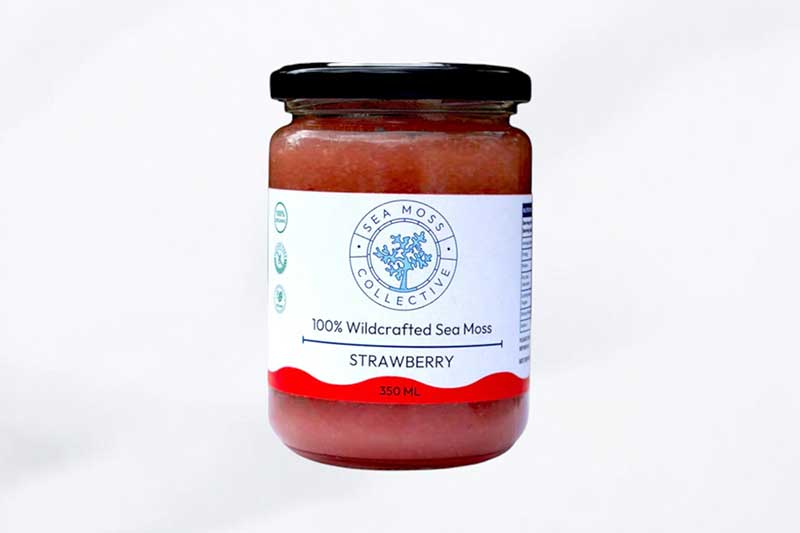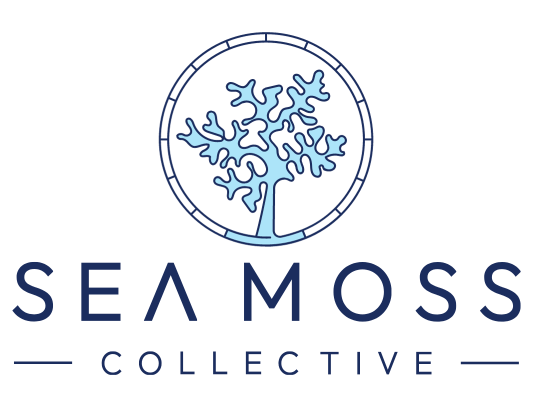The Mineral Profile Of Sea Moss: What's Actually Inside
You've probably heard people talking about Sea Moss lately. It's everywhere on social media, in smoothies, and in health food stores. But what exactly is in this seaweed that's got everyone curious? Let's break down what scientists have found inside sea moss and why people are so interested in adding it to their diet.
1. Iodine – The Ocean's Signature Mineral:
Sea moss grows in the ocean, so naturally, it soaks up iodine from seawater. This mineral is one of the most talked-about components in sea moss. Iodine plays a crucial role in thyroid function. According to research published in the Journal of Applied Phycology, sea moss can contain varying amounts of iodine depending on where it grows. The levels aren't consistent across all batches, which is something to keep in mind.
2. Calcium – Yes, It's Not Just In Dairy:
We often think of milk when someone mentions calcium, but sea moss also contains this mineral. It originates from ocean water, where seaweed absorbs nutrients. We all know that Calcium is essential for bones and teeth. A small serving of sea moss can contribute to your daily mineral intake, though the exact amount varies.
3. Magnesium – The Relaxation Mineral:
Magnesium is another mineral found in sea moss. It plays a role in over 300 different bodily processes. From muscle function to energy production, magnesium helps to keep things running smoothly. Sea Moss naturally absorbs magnesium from its saltwater environment.
4. Potassium – Beyond Bananas:
Everyone knows bananas have potassium, but sea moss contains it too. It is known that Potassium works in conjunction with sodium to maintain fluid balance within our cells. It's involved in nerve signals and muscle contractions. The ocean water provides sea moss with this essential mineral.
5. Iron – The Energy Mineral:
Iron is present in sea moss, though not in massive amounts. This mineral helps your blood carry oxygen throughout your body. Sea Moss gets its iron content from the mineral-rich seawater in which it grows. The amount varies based on the growing conditions and location.
6. Zinc – The Immune System's Friend:
Zinc is a trace mineral found in sea moss. It's involved in immune function and wound healing. While sea moss isn't a concentrated source of zinc, it does contain small amounts that may contribute to our overall mineral intake.
7. Other Trace Minerals:
Sea moss contains many other trace minerals in smaller quantities. These include selenium, manganese, and phosphorus. The exact mineral profile depends on where the sea moss was harvested. Waters with different mineral compositions will produce sea moss with varying nutrient levels.
The "92 Minerals" Claim – Let's Be Honest:
You've probably seen claims that sea moss contains "92 out of 102 minerals your body needs." There's actually no scientific study that backs up these specific numbers. While sea moss does contain various minerals, the exact count and amounts aren't precisely documented in research.
Wrapping It Up
Sea Moss is a nutrient-dense ocean vegetable with a variety of minerals. The exact amounts vary based on growing conditions, water quality, and harvesting location. It's not a magic superfood, but it is a natural source of minerals from the ocean. If you're considering adding it to your routine, remember that quality and sourcing are crucial.
At Sea Moss Collective, New Zealand, we understand that knowing what's in your sea moss matters. That's why we source our quality Sea Moss NZ from clean ocean waters and provide transparent information about our products. We believe in offering quality sea moss products that you can trust. Our wildcrafted sea moss is carefully harvested and prepared to maintain its natural mineral content. Whether you're new to sea moss or a long-time user, we're here to provide authentic sea moss with complete transparency about sourcing and quality. Visit our website to buy our sea moss products today.
Disclaimer: This blog is intended for general informational purposes only and does not provide medical or nutritional advice. It does not make therapeutic claims. For personal advice, consult a qualified health professional.

